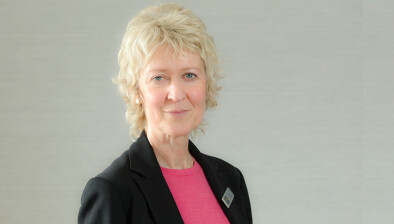Everyone Home: Charles Maasz, chief executive at Glasgow City Mission
People require homes, somewhere in which they feel secure and safe. It is not hard to grasp that not all accommodation is suitable to be called ‘home’.

Charles Maasz
It is not the absence of housing stock so much as the quality of that stock, its location, and environment that is so crucial when looking deeply at the issues around homelessness and housing insecurity. Vulnerable people need support. The support we know works but of course it comes at a cost, but the cost is nothing compared to the accumulated costs that follow when no support is available. Our most vulnerable and chaotic people simply move around the system, less of a revolving door than a spin-cycle of trial and fail.
In our collective of sector leaders, all in conversation around the issues of homelessness, we recognise that given the will to see change happen, things can move at breathtaking speed. Indeed the gains made this spring in the face of a global pandemic and a national call for the homeless to be given isolation appropriate accommodation have been outstanding. Admittedly the use of hotels must be a temporary solution but even in the short term it has revealed much. Our teams have been better able to engage vulnerable people in meaningful ways resulting in speedier processing of housing claims, benefits assistance, addiction therapies and programmes, and much more.
There is a revolving door in far too many cases and anyone in our sector recognises it and eviction plays its part in the cycle. However eviction as a mechanism doesn’t work at a societal level, only as a blunt remedy for landlords. It simply moves the problem on, like a child moving the greens around and around the plate. A change is required to the recipe and the presentation to ensure that people are not simply moved from one door to the next, agency to agency without end. The people we serve are people who live, breath, and have their being within our nation and all people, no matter their legal or social status are deserving of our best. An improvement of their lives is an improvement in the lives of all, and a change in approach can send a radical message to the rest of the world as to how Scotland treats its own.
Most of the most challenging behaviours in our country can be traced to early life trauma, abuse, and neglect, far too common as we all know. We can, right now, make a difference to the damaging systemic cycles that afflict those at our society’s margins. Right now we have a real window of opportunity to make radical leaps forward in the way we manage the needs of our must vulnerable and troubled. We have been greatly encouraged by what has been proven possible in tackling and managing homelessness when there is the political and collective will to make things happen. We are delighted to join our sector partners in this collaborative effort which seeks to ensure that our nation keeps moving forward, building on what has been achieved, looking forward to ever new challenges, and taking no backward steps.
This is a moment in time in which much can be achieved, or we can slide back. But back cannot be an option given the likely challenges to we will all face once the full impact of the pandemic becomes clearer. There are no self-made people, no person is an island as we deep down all know. We required homes, somewhere in which we felt secure and safe. To get on we also required community, because we are community beings. We did better because we were nurtured, encouraged, shown dignity, and respect. Housing, homes, and community are central to the success of Scotland and through projects like ‘Everyone Home’ we will keep pushing to improve the situation for all who look to Scotland as home.







